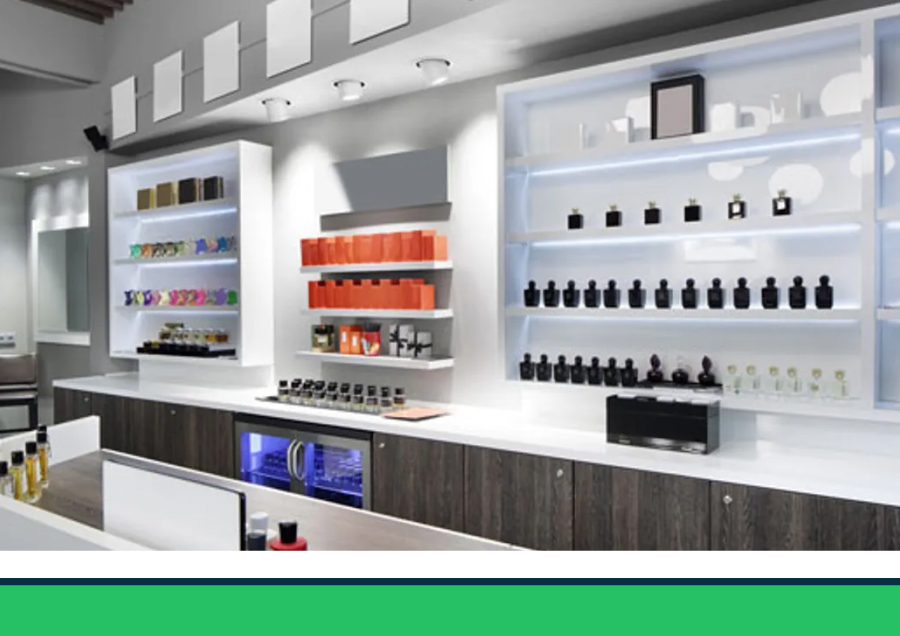As a budding entrepreneur, you’re likely exploring lucrative business opportunities in Nigeria’s growing market. The perfume industry, in particular, has shown remarkable promise, with an increasing demand for fragrances driving growth. For instance, the popularity of luxury perfumes has led to a surge in sales, with brands like Chanel and Dior experiencing significant revenue growth in the Nigerian market.
Is Starting a Perfume Business Profitable?
Yes, starting a perfume business in Nigeria can be highly profitable, with the market projected to reach NGN 71.4 billion (USD 185 million) by 2025, growing at a CAGR of 12.3% from 2020 to 2025. By venturing into this market, you can tap into the growing demand for fragrances and establish a successful perfume business in Nigeria. Following the steps outlined in this guide on How to start a perfume business in Nigeria (2024), you’ll be well-equipped to navigate the market and capitalize on its potential.
You can achieve a market share and generate substantial revenue with a well-planned business strategy. According to a report by Euromonitor International, the average price of premium perfumes in Nigeria is around NGN 15,000 (USD 39) per 100ml, indicating a lucrative market for entrepreneurs. Offering high-quality perfumes at competitive prices can attract a loyal customer base and drive business growth.

A Step-by-Step Guide to Start a Perfume Business in Nigeria
As you embark on your entrepreneurial journey, starting a perfume business in Nigeria can be a thrilling venture. With the right guidance, you can navigate the market and establish a successful perfume business. Imagine creating unique fragrances that captivate the senses and building a brand that resonates with customers.
As you consider starting a perfume business in Nigeria, it’s essential to understand the market dynamics. The perfume industry in Nigeria is characterized by a diverse range of products, from affordable to luxury fragrances. The market is dominated by international brands, but there is a growing demand for local and niche perfumes. This presents an opportunity for you to create unique fragrances that cater to the evolving tastes of Nigerian consumers.
To succeed in this market, you need to develop a solid business plan that outlines your goals, target market, marketing strategy, and financial projections. You’ll also need to conduct market research to understand consumer preferences, trends, and competitors. By following the steps outlined in this guide on “How to start a perfume business in Nigeria (2024)”, you’ll be well-equipped to navigate the market and establish a successful perfume business in Nigeria. So, let’s get started on this exciting journey!
- Conduct Market Research
As you embark on your journey to start a perfume business in Nigeria, conducting market research is a crucial first step. Imagine being able to create fragrances that resonate with your target audience and understanding the market dynamics to make informed business decisions. By doing so, you’ll be able to develop a solid business plan that sets you up for success.
To truly understand the Nigerian perfume market and consumer preferences, you need to dive deeper into the industry. You’ll discover that the market is dominated by international brands, but there is a growing demand for local and niche perfumes. For instance, you may find that consumers in Lagos and Abuja prefer luxury perfumes, while those in other regions may opt for more affordable options. By understanding these preferences, you can create fragrances that cater to the evolving tastes of Nigerian consumers. As you follow the steps outlined in this guide on How to start a perfume business in Nigeria (2024), you’ll learn how to analyze consumer behavior and identify market trends.
As you analyze target audience trends and competitors, you’ll begin to see patterns emerge. You may notice that certain fragrance notes, such as citrus or floral scents, are more popular among certain age groups or regions. By analyzing your competitors, you’ll identify gaps in the market and opportunities to differentiate your brand. For example, you may find that there is a lack of perfumes catering to specific skin types or preferences. By identifying these gaps, you can create unique fragrances that meet the needs of your target audience, setting you apart from the competition.
- Develop a Business Plan
Now that you’ve conducted market research, it’s time to develop a business plan that outlines your goals, strategies, and financial projections. Think of your business plan as a roadmap that guides your decision-making and ensures you stay on track. By creating a solid plan, you’ll be able to secure funding, measure performance, and make data-driven decisions.
Your business plan should start with an executive summary that outlines your business goals and objectives. This should include a brief overview of your company, your mission statement, and your vision for the future. For example, you may aim to become a leading perfume brand in Nigeria, known for your unique fragrances and exceptional customer service. Next, you’ll dive into market analysis, where you’ll apply the insights gathered during your market research. You’ll analyze your target audience, industry trends, and competitors, and use this information to inform your marketing strategy.
Your marketing strategy should outline how you plan to promote your brand, engage with your target audience, and drive sales. This may include social media marketing, influencer partnerships, and in-store promotions. As you develop your marketing strategy, you’ll also need to consider your financial projections, including your budget, funding requirements, and profit margins. You’ll need to estimate your revenue, expenses, and cash flow, and create a financial plan that ensures sustainability and growth. Finally, your operational plan will outline the day-to-day operations of your business, including production, distribution, and customer service. By developing a comprehensive business plan, you’ll be well-equipped to launch and grow a successful perfume business in Nigeria.
- Choose a Business Model
As you progress on your entrepreneurial journey, it’s essential to choose a business model that aligns with your goals and target market. Your business model will define how you operate, generate revenue, and interact with customers. Imagine being able to sell your perfumes directly to consumers or partnering with retailers to expand your reach. The choice is yours, and it’s crucial to consider your options carefully.
When deciding between retail and wholesale, consider your target audience and sales strategy. If you want to sell directly to consumers, a retail model may be the way to go. You can open physical stores or leverage e-commerce platforms like Jumia or Konga to reach a wider audience. On the other hand, if you prefer to partner with retailers, a wholesale model can help you expand your reach and increase sales. You can supply your perfumes to retailers, who will then sell them to customers. By choosing the right business model, you’ll be able to effectively reach and serve your target market.
As you consider your business model, you’ll also need to think about online vs. offline sales channels. While physical stores offer a tactile experience, e-commerce platforms provide convenience and accessibility. You can choose to operate solely online or combine both approaches for a hybrid model. For instance, you can open a physical store in Lagos and also sell your perfumes on your website or social media platforms (Facebook, Twitter, Instagram, etc.). By leveraging both online and offline channels, you can maximize your reach and sales potential.
- Secure Quality Product Sources
To create exceptional perfumes, you need to secure high-quality product sources. Imagine sourcing the finest essential oils and fragrance compounds to craft unique fragrances that captivate your customers.
When it comes to ingredients, you’ll need to find reliable suppliers of essential oils and fragrance compounds. You may opt for local farmers or international distributors, depending on your specific needs. For instance, you may source lavender oil from a local farm in Nigeria or bergamot oil from a reputable distributor in Europe. Ensure that your suppliers adhere to quality standards and sustainable practices. Next, you’ll need to find trustworthy suppliers for packaging materials like bottles, labels, and boxes. Consider factors like durability, aesthetics, and eco-friendliness when selecting packaging materials. Finally, weigh the pros and cons of working with local versus international suppliers. While local suppliers may offer faster delivery times, international suppliers may provide access to rare ingredients or better pricing. By carefully selecting your product sources, you’ll be able to craft perfumes that meet your high standards.
- Branding and Product Development
As you build your perfume business, it’s essential to develop a strong brand identity and product line that resonates with your target audience. Imagine creating a unique brand that stands out in the market, with a product line that caters to diverse tastes and preferences.
To establish a strong brand identity, you’ll need to create a unique logo, color scheme, and packaging that reflects your brand’s values and personality. Your logo may feature a stylized letter or a symbol that represents your brand’s essence. Your color scheme may include a palette of soothing colors that evoke emotions and sensations. Your packaging may feature elegant designs and premium materials that convey luxury and sophistication. Once you have a solid brand identity, you can develop a product line that showcases your creativity and expertise. You may create a range of fragrances that cater to different moods, occasions, and personalities. Finally, ensure that your products meet high standards of quality and consistency so that your customers can trust your brand and become loyal advocates. By focusing on branding and product development, you’ll be able to build a successful perfume business that stands out in the market.
- Manufacturing and Production
As you prepare to launch your perfume business, you’ll need to decide on the best approach for manufacturing and production. Imagine being able to control the entire production process in-house or partnering with a reliable contract manufacturer to ensure high-quality products.
When considering production methods, you’ll need to weigh the pros and cons of in-house production versus outsourcing. In-house production allows for greater control over the process but may require investment in equipment and personnel. Outsourcing, on the other hand, can provide cost savings and access to specialized expertise but may require careful monitoring to ensure quality standards. Once you’ve decided on a production method, implement stringent quality assurance measures to ensure consistency and excellence in every product. This may include testing raw materials, monitoring production processes, and conducting regular quality checks. By prioritizing quality assurance, you’ll be able to build a reputation for exceptional perfumes that meet the highest standards.

- Distribution Channels
As you prepare to launch your perfume business, it’s essential to establish effective distribution channels to reach your target audience. Imagine seeing your perfumes on the shelves of local beauty shops and department stores or receiving online orders from customers around the world.
You can start by partnering with local retail stores, such as beauty shops and department stores, to stock your perfumes. This will provide visibility and accessibility for your products. Additionally, consider utilizing online platforms like e-commerce sites(Jumia, Konga, Jiji, Payporte, Printivo store, etc.) and social media to reach a wider audience. You can create a website or online store to showcase your products and process transactions. Furthermore, leverage your personal networks and social media channels to sell your perfumes directly to customers. You can also explore export opportunities to expand your reach into international markets. By diversifying your distribution channels, you’ll be able to increase your brand’s visibility, reach new customers, and drive sales.
- Marketing and Promotion
As you launch your perfume business, it’s crucial to develop a marketing and promotion strategy that resonates with your target audience. Imagine creating a buzz around your brand, generating interest, and driving sales through effective marketing tactics.
You can start by leveraging social media platforms like Instagram, Facebook, and TikTok to showcase your perfumes, share behind-the-scenes content, and engage with your audience. Social media marketing allows you to target specific demographics, increasing your brand’s visibility and reach. Additionally, consider partnering with beauty influencers who align with your brand values, as they can promote your perfumes to their vast followers. Traditional advertising methods like print media, billboards, and TV ads can also help you reach a wider audience. Finally, engage with beauty journalists, content creators, and bloggers through public relations efforts, offering them exclusive access to your brand and products. By implementing a comprehensive marketing and promotion strategy, you’ll be able to create a loyal customer base and establish your brand as a leader in the perfume industry.
- Financial Management
As a perfume entrepreneur, effective financial management is crucial to ensure the success and sustainability of your business. Imagine having a clear understanding of your financial situation, making informed decisions, and driving growth.
To achieve this, you’ll need to establish a robust accounting system that tracks expenses, sales, and inventory levels. This will provide you with a real-time understanding of your financial performance and enable data-driven decision-making. Next, develop a budget that estimates income and allocates funds efficiently across various business areas. This will help you prioritize spending, manage cash flow, and optimize resources. Finally, explore funding options that align with your business needs, such as personal savings, loans, or investors. By managing your finances effectively, you’ll be able to navigate challenges, capitalize on opportunities, and achieve long-term success. Remember, financial management is an ongoing process that requires regular monitoring and adjustments to ensure your business remains financially healthy and thriving.
- Customer Service and Feedback
As a perfume entrepreneur, delivering exceptional customer service and gathering valuable feedback is crucial to building a loyal customer base and driving business growth. Imagine creating a community of satisfied customers who rave about your brand and products.
To achieve this, focus on building strong relationships with your customers by providing personalized support, responding promptly to inquiries, and showing genuine interest in their needs. This will help you understand their preferences, and pain points, enabling you to tailor your products and services to meet their expectations. Additionally, establish feedback mechanisms that encourage customers to share their thoughts and opinions, such as surveys, reviews, and social media engagement. Use this feedback to improve your products and services, addressing any concerns or issues that arise. Finally, provide excellent after-sales service by offering warranties, repairs, and maintenance support, ensuring that customers feel valued and supported long after their purchase. By prioritizing customer service and feedback, you’ll build a loyal following and drive business success.
- Scaling and Expansion
As your perfume business flourishes, you’ll need to consider scaling and expansion strategies to maintain momentum and reach new heights. Imagine expanding your product line, franchising your brand, and exploring new markets – the possibilities are endless!
To start, consider introducing new fragrances and related products to complement your existing line. This will help you cater to diverse customer preferences and stay competitive in the market. Next, explore franchise opportunities, allowing you to replicate your business model and expand your reach nationwide. Following the guidelines outlined in “How to start a perfume business in Nigeria (2024)”, you can establish a strong foundation for franchise success. Furthermore, consider nationwide and international expansion, leveraging affiliate marketers, retail partnerships, subscription services, corporate gifting packages, and more to increase your brand’s visibility and reach. By adopting a strategic approach to scaling and expansion, you’ll be able to achieve remarkable growth and solidify your position in the perfume industry.
Starting a perfume business in Nigeria requires careful planning, research, and execution. By following these steps and staying focused on quality and customer satisfaction, you can build a successful and profitable perfume business in Nigeria. Remember to stay up-to-date with industry trends, adapt to changing consumer preferences, and continuously improve your products and services. With dedication and perseverance, you can establish a reputable brand and make a lasting impact in the Nigerian perfume industry. Embrace your entrepreneurial spirit and turn your passion into a thriving business.
Frequently Asked questions
How much does it cost to start a perfume business in Nigeria?
The cost of starting a perfume business in Nigeria varies widely, depending on the size and scope of the business. Initial investments for small scale can range from ₦30,000 to ₦50,000 or more, covering expenses such as raw materials, equipment, marketing, and rent. A small-scale business can start with minimal investment, while a larger operation requires more capital from N500,000 to millions of naira. Buying from the producers requires small capital unlike you starting the production.
How to succeed in the perfume business?
To succeed in the perfume business, you should focus on three key areas: quality, branding, and customer service. Develop unique fragrances using high-quality ingredients, create a strong brand identity, and provide exceptional customer service to build loyalty and drive growth.
How to sell perfumes from home?
Selling perfumes from home is easy! Utilize social media platforms like Instagram and Facebook to showcase your products, leverage online marketplaces like Jumia and Konga, and tap into your personal network by sharing your business with friends, enemies, and family.
How do I market my own perfume?
Marketing your perfume requires creativity and strategy. Leverage social media platforms, collaborate with influencers and beauty bloggers, and utilize traditional advertising methods like print and TV ads. Create engaging content, offer samples, and provide exceptional customer service to build brand loyalty.
What ingredients make a perfume last longer?
High-quality essential oils and fragrance compounds are the key ingredients that make a perfume last longer. These ingredients ensure a longer shelf life and a more intense, longer-lasting fragrance. Use premium materials to create perfumes that linger on the skin.
How do I introduce my perfume business online?
Introducing your perfume business online is easy by utilizing social media platforms like Instagram and Facebook, creating an e-commerce website or utilizing existing platforms like Shopify, and leveraging online advertising methods like Google Ads and Facebook Ads. Share engaging content, offer promotions, and provide exceptional customer service to build a strong online presence.
About Us: Sycamore NG is a fintech solutions provider that empowers businesses and individuals to achieve more through loans and savings. With us, you can quickly obtain business and personal loans, or save towards your financial goals, all through our app and web platform trusted by thousands of users.




